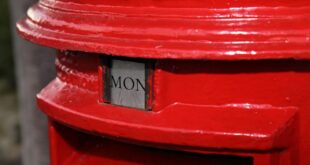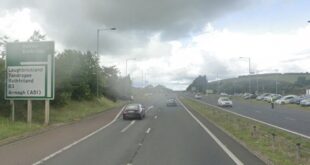Royal Mail has announced that they will soon switch to new postage stamps that integrate a barcode that creates a digital twin stamp. What are digital twins, why is Royal Mail integrating this into stamps, and how else could it be used?
The term “digital twin” refers to the creation of a digital copy of a physical device. In industrial environments, digital twins refer to machinery and other physical systems that are turned into a hyper-realistic digital simulation that allows for experimentation, training, and monitoring. In the context of autonomous vehicle training, a digital twin provides a simulated environment with a digital vehicle that integrates all the vehicle’s subsystems, including sensors, controllers, engine, and onboard computers. Thus, the digital twin vehicle can be trained in the simulated environment, and the resulting AI algorithms can be downloaded into a real vehicle for use in the real world.
It must be understood that there is a difference between a simulation and a digital twin as simulations create an environment that tries to mimic real-life. In contrast, a digital twin creates an identical copy of a system in a digital framework such that applications and routines that run on either system are indistinguishable from the applications point of view.
A recent trial of a new stamp system by Royal Mail has proven to be a success, and Royal Mail will now be switching over to a new stamp system whereby each stamp will have an effective digital twin. The new stamps will still have the portrait of the current head of state (Queen Elizabeth as of 2022), but the side of the stamp will incorporate a new barcode system that is similar to a QR code.
Each stamp will have a unique code that will not be reused, and these barcodes can incorporate links and messages from the sender (such as a link to a video message or an e-card). Furthermore, the use of digital twin stamps allows Royal Mail to improve security and fight against stamp fraud whereby customers either reuse stamps that haven’t been appropriately marked or use fraudulent stamps not manufactured by Royal Mail. It is not clear how much of a problem this is, but it seems enough to encourage Royal Mail to digitise its services. Royal Mail has stated that the barcodes themselves do not contain personal data as anyone can use the stamp.
Older stamps, as such, are to be phased out by 31st January, and Royal Mail has started a “Swap Out” service that allows customers to exchange their old stamps for new ones. However, this service will only be available at delivery offices and not postal offices, making it hard for some customers to access.
One major bonus that doesn’t seem to be mentioned is that these stamps could provide the smallest cheapest letters with a tracking system. As all stamps are unique, and each of these will likely be scanned at sorting offices, it requires virtually no effort to simply add scanning locations to a database of all barcodes and then allow customers access to tracking information. Currently, tracking services are only available to Royal Mail services that specifically provide tracking. As such, digitisation of stamps could help to revolutionise postage with improved services and customer satisfaction.
While it may seem that such barcodes may allow for tracking of personal items in the post, this is hardly a cause for concern considering that the whole point of postal services is to send mail from one location to the other reliably, and tracking service for all stamps would significantly improve this. Furthermore, someone intercepting mail to note down barcodes would not be able to do anything with that information, and the very act of intercepting mail to see who has been communicating to who is already being done (i.e. determining where to send a letter).
Overall, switching over to digital twin stamps will improve the service and allow for additional features that can be linked.



